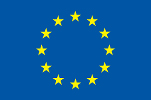Paper on Typologies [1]
Adopting an explorative approach, this article seeks to advance understanding of how leading mid-sized cities are undergoing transitions towards post-carbon futures in the EU. The paper develops a preliminary typology of mid-sized cities in post-carbon transitions, profiling five exemplary city types according to a combination of their sustainability characteristics. The profiled cities have been pre-selected to provide reasonable geographic distribution within the EU, and show the influence of different contextual factors: population size, local political autonomy and economic wealth: (1) Malmö (Sweden); (2) Bristol (UK); (3) Freiburg (Germany); (4) Vitoria-Gasteiz (Spain); and Ljubljana (Slovenia). Conceptually, transitions are viewed as the outcome of the specificities of a place and broader (regional, national, transnational) dynamics in a range of dimensions (climate, economic, political-discursive) over a period of time. The progress of these cities in transition is evaluated qualitatively in environmental, social and economic terms. It is
hoped that developing knowledge on generic urban types may aid in establishing which mid-sized cities are peers for the transfer of successful mitigation practices. This is especially important for disseminating and scaling up effective practices across European cities under different contextual conditions and with limited funding.

